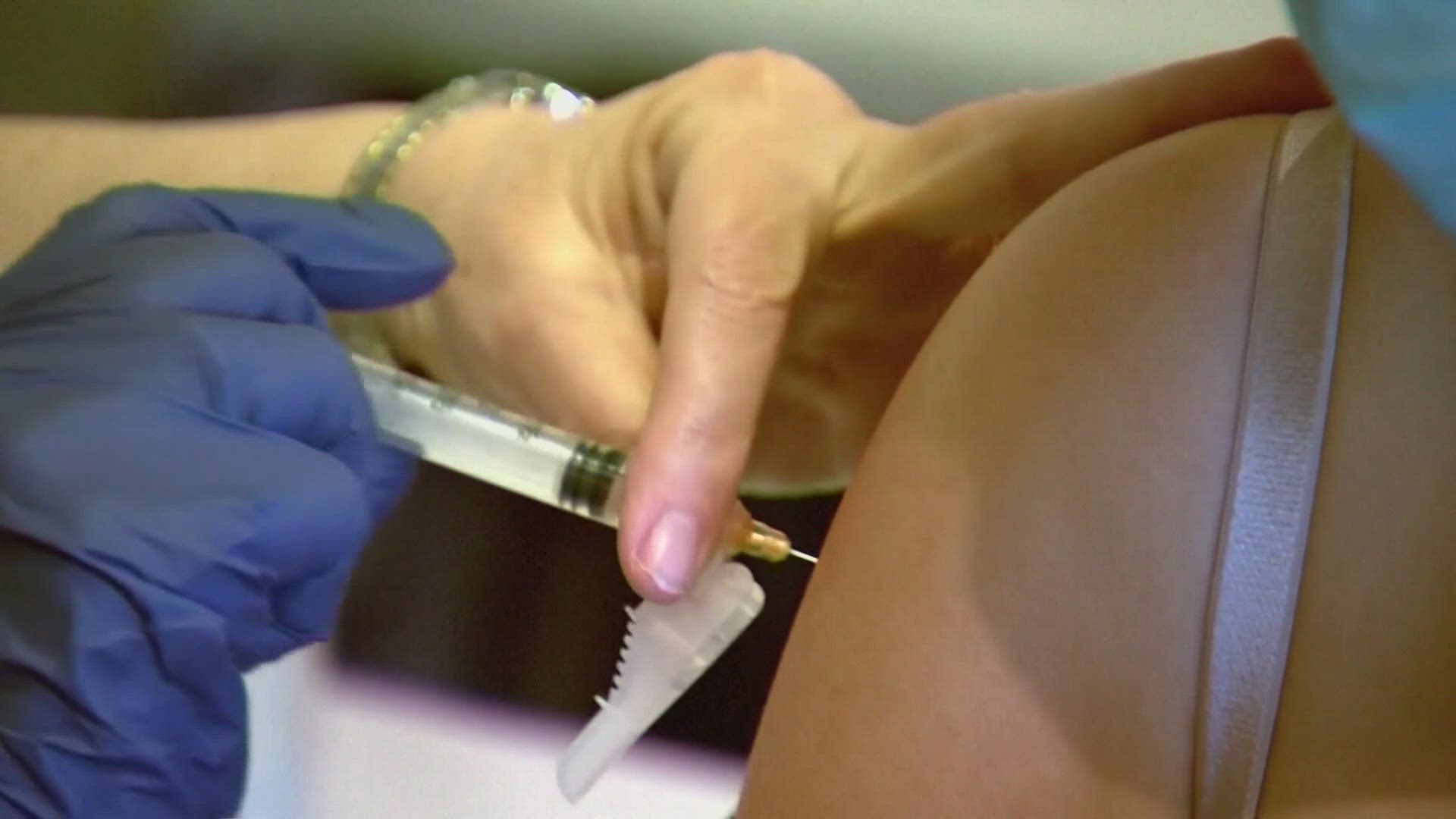COLORADO, USA — Now that its September, ‘tis the season for the weather to change and all kinds of nasty little viruses to start circulating.
The Food and Drug Administration (FDA) just signed off on some new COVID vaccines, and pharmacies are taking appointments for people looking to catch up on those vaccinations and others.
9NEWS sat down with Dr. Michelle Barron, senior director of infection prevention at UCHealth, to talk about the seasonal virus outlook and what to know about vaccines this year.
What is happening with COVID-19 right now?
“Cases are on the rise, and it doesn’t seem like they’re slowing down. We’re in that intermission period where we don’t know what’s about to happen,” she said. “This is the problem with COVID – it hasn’t quite gotten into a seasonal pattern.”
Barron said the current variants of concern are descendants of the Omicron variant that act more like sprinters (short, quick, hard-hitting viruses) compared the more marathon-like illness of early-years COVID. The FDA has approved new vaccines from Pfizer and Moderna, designed to target the KP.2 strain.
Does it matter which brand you get? How do you choose?
“Conceptually, they are the same in terms of components. Slightly different. People sometimes say, ‘I got all the same brand and that’s the one I want to stick to because I already know the side effects form it.' That’s totally reasonable thing,” Barron said. “Other people are, like, 'Yeah, I like to mix it up.'”
She added, “So really its whatever makes sense. Again, what’s available? If it’s available and you’re there – that’s the one you should get.”
While its hard to predict any virus season, Barron said we can look to the southern hemisphere trends to better anticipate what will happen in our northern hemisphere virus season. She said influenza trends this year appear to be more “typical,” with experts expecting a rise around the holidays with the most vulnerable populations. The elderly, young children and immunocompromised are most at risk. COVID is trickier to predict.
“We’ll know more when we know [and] that’s kind of what we see with COVID. I think being unpredictable is part of the predictability,” Barron said.
The FDA also granted emergency use authorization for Novavax’s updated COVID-19 shot, targeting the JN.1 strain, which was more prevalent earlier this year, but not as common now.
What about the RSV outlook?
Cases filled pediatric hospital beds in 2022 and a shortage in the antibody shot for kids led to a slow rollout last year.
“It’s completely unpredictable, but there’s very highly vulnerable populations. Babies in particular, underage [the] of one, are particularly vulnerable and certainly even beyond that age group. Young toddlers are at high risk for complications," she said.
The CDC says the adult RSV vaccine provides protection for at least two years. Barron said that means older adults who got their shot last year can skip this year.
However, she recommends elderly people, immunocompromised people or anyone else with underlying conditions who could benefit from the RSV vaccine who did not get it already – should consider doing so.
What’s the best time to sign up for shots?
“Get it when you can. Don’t try to time it based on, 'Oh, I’ll wait, before my big trip.' Convenience is a big thing. That’s probably more important than anything you’ll gain by trying to time it at a certain time,” Barron said.
And it’s not too early to sign up, even in early September.
“For the flu shot, you get about six months protection. That gets most people through flu season. Its close enough, it may not be perfect," Barron said. "The bulk [of cases and risk] is mid-November, December [and] January. Those are our big months. That’s the key – get it done before then.”
The doctor added some final advice about other ways to keep yourself safe this virus season:
“Wash your hands. Our hands are vectors for most things. Clean your phones. God knows where your phone has been any given moment," Barron said. "If you’re not feeling great, or in densely populated areas in the winter months, think about bringing a mask with you.”

